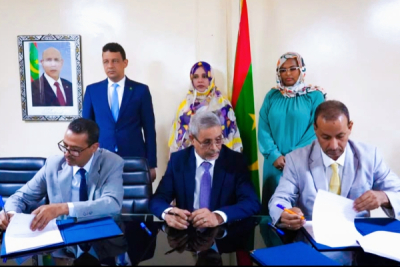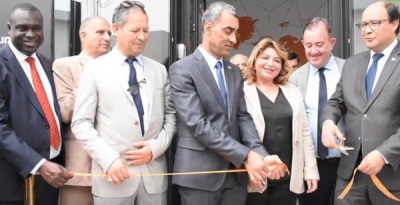- The strategy aims to fully digitize Algeria by 2030, fostering collaboration among government, tech experts, and the private sector, with strong support from the presidency.
- Priorities include training 500,000 ICT specialists, reducing tech talent emigration by 40%, and boosting the digital sector’s GDP contribution to 20%.
High Commissioner for Digitalization Meriem Benmouloud unveiled Algeria's National Digital Transformation Strategy (SNTN) on Monday, a blueprint aiming to fully digitize the nation by 2030. The strategy seeks to galvanize all stakeholders – from government ministries and tech experts to public and private sector players – around a shared vision for the future.
Benmouloud emphasized the strong presidential backing for this initiative, stating, "The significant importance the President of the Republic places on digitization, personally monitoring its progress, underscores the unwavering political will at the highest levels to achieve a comprehensive digital transition in Algeria."
The SNTN is built upon five foundational pillars: the development of robust digital infrastructure, the cultivation of digital skills and training, the establishment of effective digital governance, the promotion of a thriving digital economy, and the inclusive integration of all citizens into the digital realm.
Central to the strategy is the development of human capital. The government aims to train 500,000 information and communication technology (ICT) specialists while simultaneously working to decrease the emigration of these skilled workers by 40%.
Economically, the SNTN envisions digitalization as a key engine of growth, targeting a 20% contribution from the digital sector to Algeria's gross domestic product. This will be achieved by digitizing public services and nurturing a dynamic environment for tech entrepreneurship.
Furthermore, a top priority is the complete digitization of government administration, a move expected to streamline processes, enhance transparency, and improve the quality of services delivered to both citizens and businesses.
Underpinning these ambitions are significant infrastructure projects, including two national data centers. The facility in Mohammadia is reportedly 80% complete, while the Blida center is 50% finished, according to the High Commissioner. These strategic assets are designed to bolster Algeria's national capacity for secure data storage, processing, and the hosting of digital platforms.
Supporting the entire strategy are two critical cross-cutting elements: first, the creation of a suitable legal and regulatory framework, with a draft law on digitization currently under development; and second, the strengthening of cybersecurity defenses, deemed essential for protecting data and information systems against increasingly sophisticated cyber threats.
Through the SNTN, Algeria envisions itself emerging as a leading digital hub in North Africa. Benmouloud asserted that the progress made to date positions the country to achieve continental leadership in digital transformation by the target year of 2030.
This strategic roadmap aims to provide a sustainable structure for government action in the digital sphere, with a clear focus on inclusive development, technological sovereignty, and the modernization of the Algerian economy.
By Samira Njoya,
Editing by Sèna D. B. de Sodji



















